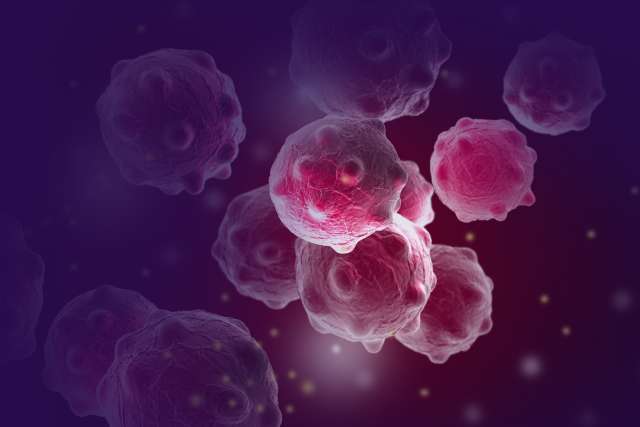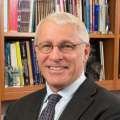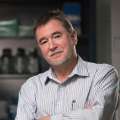UCLA scientists have received seven of 72 seed grants awarded by the state to fund stem cell research, the first money distributed for work on human embryonic stem cells since California voters approved Proposition 71 in November 2004. Seed grant funding totaled $45 million.
The seven UCLA grants, awarded Feb. 16, total more than $4 million over two years. More than half of the applications submitted by UCLA scientists were approved for funding. In all, scientists affiliated with the Institute for Stem Cell Biology and Medicine at UCLA (ISCBM) applied for 11 seed grants.
The California Institute for Regenerative Medicine, the state organization overseeing Proposition 71 funding, received 231 applications for seed grants totaling $138.3 million from scientists at 36 nonprofit institutions across the state.
Dr. Owen Witte, a renowned scientist and director of the ISCBM, said he is pleased that so many UCLA scientists secured state funding for their research projects.
"This is a testament to the leading-edge research being proposed by UCLA stem cell scientists, who rank among the very best in their field," Witte said. "UCLA's highly collaborative atmosphere allowed our scientists to develop innovative interdisciplinary research projects that bring expertise from all areas of the campus to bear on this important scientific endeavor."
Funded grants at UCLA include:
- Principal investigator Irvin Chen: $642,652. Genetic modification of the human genome to resist HIV-1 infection and/or disease progression.
- Principal investigator Zoran Galic: $642,501. Genetic enhancement of the immune response to melanoma via human embryonic stem cell-derived T-cells.
- Principal investigator Siavash Kurdistani and co-investigator Hanna Mikkola: $641,047. Cellular epigenetic heterogeneity as a blueprint for the identity and function of human embryonic stem cells.
- Principal investigator Michael Teitell and co-investigator Utpal Banerjee: $635,024. Role of mitochondria in self-renewal versus differentiation of human embryonic stem cells.
- Principal investigator Hanna Mikkola and co-investigators Owen Witte and Ken Dorshkind: $577,037. Improving microenvironments to promote hematopoietic stem cell development from human embryonic stem cells.
- Principal investigator William Lowry: $571,575. Modeling human embryonic development with human embryonic stem cells.
- Principal investigator Nori Kasahara: $469,219. Down-regulation of alloreactive immune responses to human embryonic stem cell-derived graft tissues.
"We feel fortunate to have been selected to receive one of seven seed grants awarded to UCLA," said grant recipient Teitell, a stem cell researcher and associate professor of pediatrics, and pathology and laboratory medicine. "This support will help us determine how stem cells manage their energy resources during self-renewal and differentiation and may also provide important insight for selecting the highest quality stem cells for future therapeutic development."
Seed grants are intended to bring new ideas and new investigators into human embryonic stem cell research, California Institute for Regenerative Medicine officials said, and offer opportunities for investigators to conduct studies that may yield preliminary data or proof-of-principle results that could then be expanded into full-scale investigations. The grants were reviewed by a committee of scientific experts from outside California and patient advocates from the Independent Citizens Oversight Committee, the Institute for Regenerative Medicine's governing board. The oversight committee approved the grants Friday during its meeting in the San Francisco Bay area.
The Institute for Stem Cell Biology and Medicine was launched in 2005 with a UCLA commitment of $20 million over five years. The institute is committed to a multidisciplinary, integrated collaboration of scientific, academic and medical disciplines for the purpose of understanding adult and human embryonic stem cells. The institute supports innovation, excellence and the highest ethical standards focused on stem cell research with the intent of facilitating basic scientific inquiry directed towards future clinical applications to treat disease. The institute is a collaboration of the David Geffen School of Medicine at UCLA, UCLA's Jonsson Cancer Center, the UCLA Henry Samueli School of Engineering and Applied Science, and the UCLA College of Letters and Science











